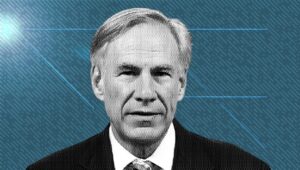The United State Department of Transportation will now require airlines to compensate travelers whose flights are canceled.
Under a new rule, airlines would be obligated to cover expenses incurred by travelers due to disrupted travel plans. This includes picking up the tab for meals, hotels and rebooking if a passenger is stranded because of a cancellation or delayed three hours or more from the scheduled departure time.
“When an airline causes a flight cancellation or delay, passengers should not foot the bill,” said Transportation Secretary Pete Buttigieg in the department’s May 8 announcement.
Travelers would be guaranteed to receive compensation for “controllable cancellations or delays.” The DOT defines a controllable cancellation or delay as being caused by a circumstance within the airline’s control. This could include maintenance or crew problems, cabin cleaning, baggage loading, and fueling.
“The Department’s rulemaking proposes to ensure that passengers experiencing controllable delays and cancellations are better protected from financial losses than is the case today,” the DOT noted in its announcement.
Travelers can be offered cash, travel credits, vouchers, or frequent flyer miles to make up for delays or cancellations.
The DOT launched FlightRights.Gov to help travelers identify which airlines offer cash compensation. The department noted that 10 of the nation’s largest airlines already guarantee meals and no-cost rebooking on the same airline and nine guarantee hotel accommodations.
Alaska Airlines offers compensation in most forms and circumstances. Frontier Airlines currently offers the fewest compensation options – rebooking travelers on another one of its flights and offering cash or a voucher for meal compensation for significantly delayed or canceled flights.
The 10 airlines — Alaska, Allegiant, America, Delta, Frontier, Hawaiian, JetBlue, Southwest, Spirit, and United – and their respective regional operating partners conduct 96% of domestic scheduled passenger air traffic, according to the DOT.
“We think that the right way forward is to establish requirements across the board so that any passenger flying on an airline in the U.S. knows what they can expect and knows that the airline can’t change the rules on them,” Buttigieg said in an interview with NPR. “I think at the end of the day, we need to make sure through public policy that these companies, airlines, have the right rules and the right incentive to do the right thing instead of just hoping that they’ll do it on their own.”
The new rules were not well received by critics of the Transportation Secretary, who feel the DOT is forcing airlines to cover the cost of the “Biden administration’s mishandling of the nation’s civil aviation system.”
Spencer Brown, a managing editor of TownHall, noted that the airlines “don’t decide what’s going on in the skies, operate air traffic control, or operate the systems that are supposed to keep things moving.” That authority belongs to the Federal Aviation Administration, which is operated by the federal government.
“For an industry with so much federal intervention, often negative, Biden and Buttigieg are barking up the wrong tree and shouldn’t be able to abdicate responsibility on yet another set of bureaucratic blunders and simply force airlines to pay for their mistakes,” wrote Brown on May 9.

